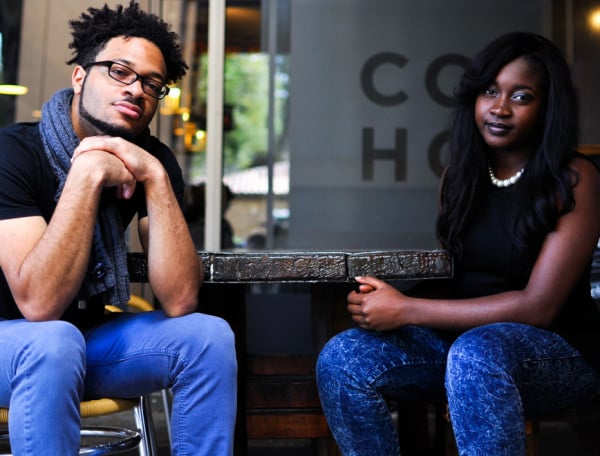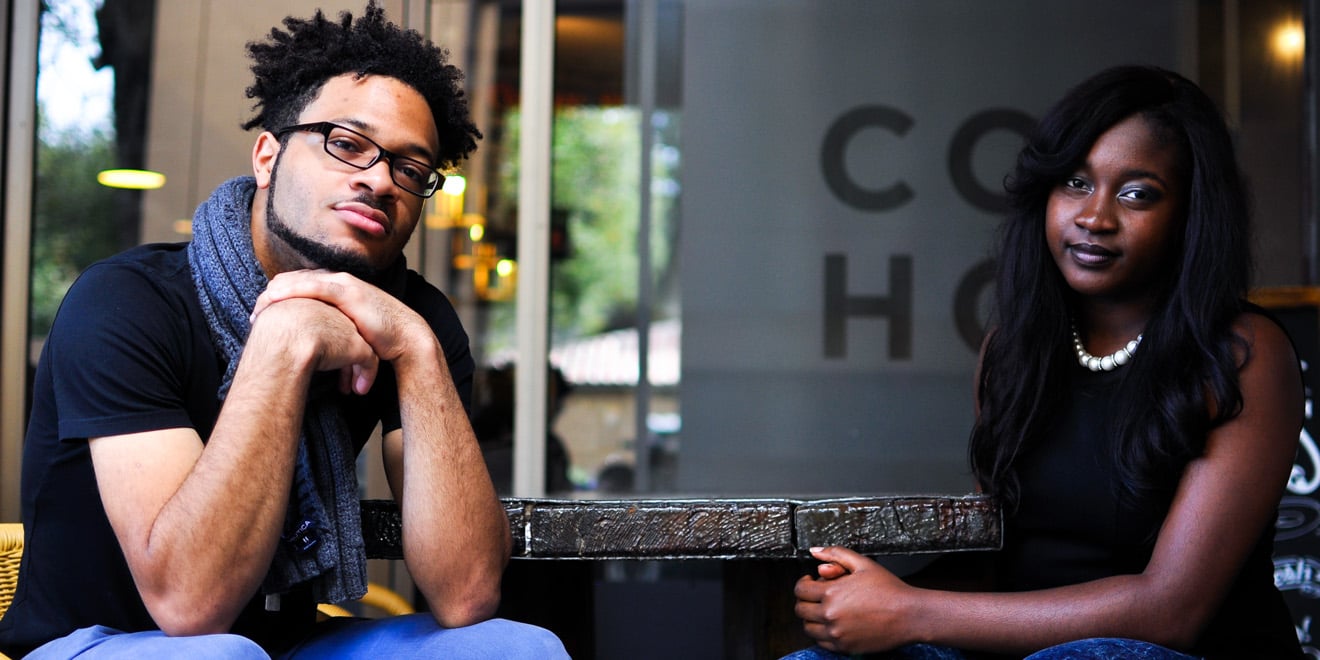
The Chicago Collective, a Stanford-based, Chicago-raised band, has a little bit of everything. Soul, jazz, R&B and gospel collide with prayer, poetry and politics, and everything they touch is underscored by a distinct sense of cool. The word “collective” may seem grandiose for a three person band, but the copious mix of influences, sounds and artistic ideas within the group almost requires such an open-ended description. The band has crafted their sound together for over four years now, and as they prepare to leave campus I sat down with them to reflect on their experience together.
I met with Tyler Brooks ’15 (piano/vocals) and Jessica Anderson ’14 (vocals), two-thirds of the group that’s been a Stanford mainstay since they first collaborated in 2010. The third member, Kadesia Woods ’14, couldn’t join us, but Tyler and Jessica filled me in on their shared experience as one of Stanford’s finest student bands.
The Stanford Daily (TSD): Do you both come from backgrounds of improvisation, or is it just something that happens naturally when you play and write together?
Tyler Brooks (TB): So I started in classical music. I did six years of classical piano and switched over to jazz my junior year of high school. I’ve kind of composed improvisationally since I was 10, like even when the ideas were garbage, that’s just been my preferred method. And jazz really brought a lot of that out, and kind of refined a lot of my theoretical skills into practical, useable tools.
Jessica Anderson (JA): In all my memories of my mom listening to records or playing music in the car, she’d always sing something different from what’s actually being played. That’s always the standard. And we’d always say, “Mom that’s not what they’re singing!” And she’d be like, “I’m trying to be creative here, you need to come up with your own version!” The assumption was that you need to be able to hear something new, something fresh and contribute something. It was always about personality and bringing what you have to offer to the table.
TSD: What kind of music has inspired your sound?
TB: I kind of feel like it’s a combination of so many different things, so many different influences. Like me, I’m not a person of favorites, I don’t have a favorite color, I don’t have a favorite movie, I don’t have a favorite artist . . . I feel like I brought more of a jazz repertoire [to the group], and Jess brought more of an R&B/gospel/soul sound. And she also brought jazz, and I also brought some R&B. We kind of just call ourselves just an Afro-diasporic music group.
TSD: And you guys call yourself the Chicago Collective because you’re both from Chicago, I take it?
JA: I think for a while it was about the hometown, but then it was about what I’m calling the “aesthetic of cool” that you get when you hear the Chicago Collective. And I think if anything it’s about the familial feeling that you get when you’re around us.
TSD: Could you elaborate on the aesthetic of cool? Do I have to be from Chicago to understand?
TB: Listen, Chicago is a very cool city. I mean there’s just like, we have step music there, we have house music there, we have R&B. Legends come out of there, you know. Not to be prideful or anything.
JA: There are very particular things that we have in Chicago that you don’t have anywhere else. And there are certain things, certain trends that we started . . . Sometimes I say that Chicago is like a sister to the South and a cousin to the East, because there’s a lot of hospitality and family, and that love and that culture that’s attributed to the South is very much a part of what we do.
TSD: Are there any moments from your time together that really stand out in your minds?
TB: So you know the Occupy Wall Street Movement? Stanford had it’s own version, Breakthrough . . . We were kind of leading the IDA [Institute for the Diversity of the Arts] component of it, because IDA was in charge of the jam session. So I called up a lot of my different friends who play drums, or bass, or guitar, or whatever. And Jess and I kinda just met there and we just led the session, and oh my… that was probably one of the most powerful experiences I remember.
TSD: Do you guys often set out to make your music political, or did that just kind of happen?
TB: That just happened. Everything — and I mean everything — happened on the spot. We probably legit came up with seven original songs right then, right there.
TSD: On stage?
TB: On the stage. Right there, from rap, to R&B, to soul, to house, it was just everything. I think that was when I was in my prime, and not one of these old guys about to graduate. But oh my God, that was just a powerful experience.
* * *
The Chicago Collective will be performing on campus next quarter, and mentioned the possibility of recording some of their originals soon. Check out their performance of an original, “After War,” from last spring.
This interview was condensed and edited.
Contact Benjamin Sorensen at bcsoren ‘at’ stanford.edu.
